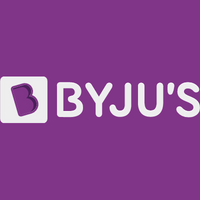
BYJU'S
View Brand PublisherDiversity and inclusivity: Going beyond headcounts, CSR initiatives, policies
At HerStory’s Women on a Mission Summit 2022, three industry leaders from BYJU’S shared their journeys, challenges, and techniques that can help actively implement policies to impact change.
A 2020 Glassdoor survey has found that 76 percent of job seekers and employees consider a diverse workforce as an important factor when evaluating job opportunities and companies. The transition from homogenous workspaces to a more heterogeneous ecosystem is happening across sectors.
Organisations are making a conscious effort to design spaces for multiple cohorts, rather than sticking to the standard practices. And they’re doing this by actively implementing policies.
In an exclusive interview with HerStory at its Women on a Mission Summit 2022, Prathyusha Agarwal, Chief Business Officer - Early Learn, ; Rachna Bahadur, Senior VP - International Business, BYJU’S and Global GM, Epic for Kids; and Mansi Kasliwal, VP - Social Initiatives, BYJU’S, shared their journey to leadership positions and the impact of their work, while discussing diversity and inclusivity in workspaces.
Being action-oriented and finding an active ally
“When I walked into Hindustan Unilever as a sales and marketing trainee, women were one of the first diversity flag bearers for organisations that were predominantly male-led,” shared Prathyusha.
Rachna elaborated on a very interesting point — if diversity and inclusion are not approached as business objectives, even with the right intentions, the results aren’t what one would expect or want. It is important to not assume that the people at the top of the leadership funnel know and understand everything.
Employees who are starting out or are at mid-level would also have experiences from diverse backgrounds that need to be heard before setting goals and formulating strategies.
“When we undertake an initiative around diversity and inclusion, we often forget to do it with the same kind of rigour that we apply to business or revenue-generating initiatives. Treat this as you would treat a revenue impacting business issue as opposed to a CSR initiative or a compliance target, and then you will see that things fall in place,” she added.
Mansi, with her on-ground experience, spoke about the importance of inclusivity with respect to female childhood education. 67 percent of girls going to school are falling back due to the two-year gap in education, with the pandemic further widening the gap. Even with digital access to education, there are hundreds of girls who will never go back to school.
“The disparity in wages – be it manual work or job opportunities – drove me to development work. At BYJU’S, we’ve been focusing on education for all. The ‘all’ is about inclusivity, and gender plays an extremely important role. So a lot of the work I have been focusing on is essentially on these fronts – inclusivity in terms of offering equal opportunity to girls through education, skill development, and community partnerships,” said Mansi.
No substitute for vision and passion
Echoing similar sentiments, Prathyusha stressed on the importance of measurably tracking achievements to ensure that the team stays motivated. People need to taste success and set new goals to be able to work towards a unified objective. She also shared how a diverse team can help achieve goals a lot faster.
For Rachna, leadership is a personal path and it’s necessary to respect one’s own time and journey. She said, “Keeping the faith and being patient, both in people and situations, is important. The second word is an oft-touted word, but I'll use it nonetheless. It's empathy and it has a lot to do with respect. If I don't respect my own time, I will not clearly respect somebody else's.”
Building a team while giving individual employees ownership over their work, and hearing them out helps in nurturing their goals.
“What I have really focused on throughout the years has been to make decision-making for my team very inclusive, and delegate that work, so that the job eventually gets done with the right set of people,” said Mansi.
Heterogeneous workplaces are a win-win for all
Gender diversity is an economic issue. A study by the McKinsey Global Institute estimates that as much as 26 percent could be added to annual global GDP in 2025 if women were to participate in the economy identically to men.
Prathyusha helped break down how companies need to move from commitment to action not to meet quotas, but because a gender-diverse workforce performs better.
“When it starts becoming ‘Oh, this is a women's issue’, there is an unnecessary focus on women, and the moment that narrative of ‘either or’ gets built, you've lost half the population. It's an organisational issue and not just a women's issue,” she added.
When talking about inclusivity, it is important to not exclude anyone from the conversation. And until it is recognised that gender diversity is an economic issue, it will be difficult to achieve bolder leadership and improve gender outcomes. After all, each and every one of us will benefit if workspaces are more heterogeneous and inclusive in nature.








